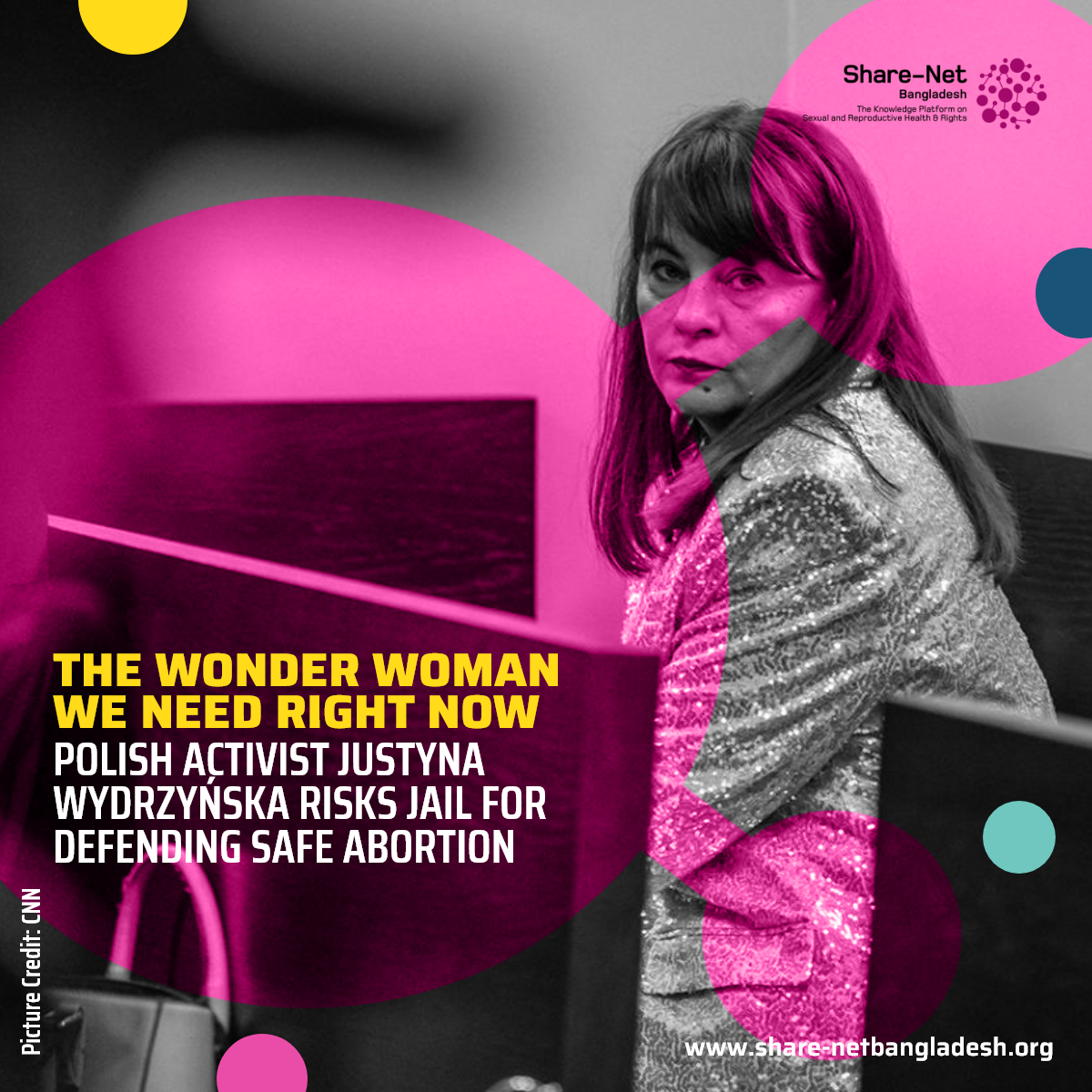The Wonder Woman We Need Right Now: Polish Activist Justyna Wydrzyńska Risks Jail for Defending Safe Abortion
In Poland, where one of the most restrictive abortion laws in Europe limits reproductive health rights, Justyna Wydrzyńska stands as a symbol of resistance. A doula and activist, Justyna risks a three-year prison sentence for helping a pregnant woman access abortion medication during the COVID-19 pandemic. Her story exposes the dire state of maternal health and the fight for sexual and reproductive health and rights (SRHR) in Poland.
Justyna is a co-founder of the Abortion Dream Team (ADT), part of the grassroots feminist network Abortion Without Borders, which has supported over 32,000 people in Poland seeking safe abortion care since 2021. Despite the legal risks, Justyna’s work provides a lifeline to those unable to navigate Poland’s draconian abortion policies. “Access to safe abortion is a human right,” she says.
Poland’s abortion law has become increasingly restrictive. In October 2020, the Constitutional Tribunal banned abortion in cases of severe or fatal fetal impairment, eliminating over 90% of legal abortions. Currently, abortion is only permitted to save a pregnant person’s life or in cases of rape or incest—criteria that remain nearly impossible to meet due to bureaucratic delays, stigma, and fear among medical professionals.
Even possessing abortion pills for self-managed abortions is not a crime, but anyone assisting others in obtaining an abortion faces harsh penalties. Justyna’s case highlights the contradiction: she faces charges for helping someone access mifepristone and misoprostol, both of which are on the World Health Organization’s Essential Medicines List.
Legal barriers to abortion disproportionately affect vulnerable groups, including low-income individuals and those in rural areas. Many resort to unsafe methods, risking their lives. Between 2021 and 2022, Abortion Without Borders facilitated travel for over 1,500 people to access safe abortion services abroad.
The chilling effect of Poland’s restrictive laws goes beyond patients. Healthcare providers fear criminal prosecution, even for legal procedures. As a result, the maternal health system is burdened, and pregnant individuals face delays in accessing care.
Justyna’s activism underscores the universal right to safe abortion care, as outlined by international human rights frameworks. This issue resonates globally, including in countries like Bangladesh, where maternal health and SRHR advocacy face similar challenges. Grassroots activism like Justyna’s demonstrates the power of community-driven initiatives to fill gaps in restrictive healthcare systems.
Poland’s authorities must decriminalise abortion and ensure access to essential medicines for self-managed abortions. As Justyna’s case proceeds, it serves as a stark reminder of the urgent need to prioritise sexual and reproductive rights over political and ideological agendas. Her bravery speaks volumes: “No one should be punished for helping others access healthcare.”
Source: Amnesty International
Picture Credit: CNN


